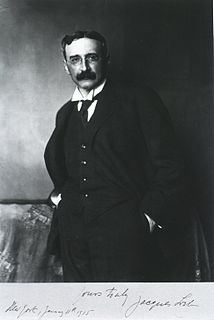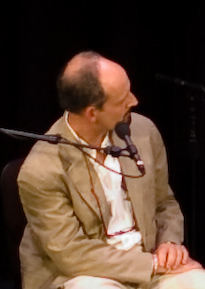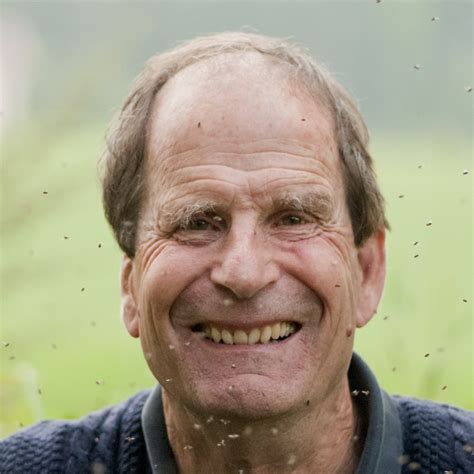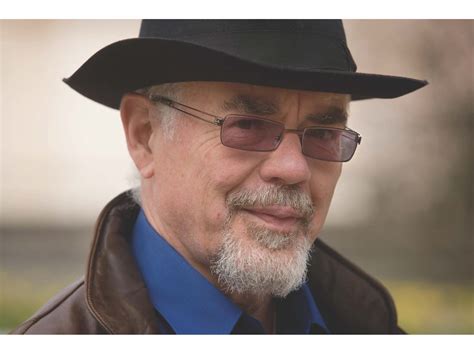Top 131 Quotes & Sayings by Rachel Carson
Explore popular quotes and sayings by an American biologist Rachel Carson.
Last updated on April 21, 2025.
We live in a scientific age, yet we assume that knowledge of science is the prerogative of only a small number of human beings, isolated and priestlike in their laboratories. This is not true. The materials of science are the materials of life itself. Science is part of the reality of living; it is the way, the how and the why for everything in our experience.
To stand at the edge of the sea, to sense the ebb and flow of the tides, to feel the breath of a mist moving over a great salt marsh, to watch the flight of shore birds that have swept up and down the surf lines of the continents for untold thousands of years, to see the running of the old eels and the young shad to the sea, is to have knowledge of things that are as nearly eternal as any earthly life can be.
If I had influence with the good fairy who is supposed to preside over the christening of all children I should ask that her gift to each child in the world be a sense of wonder so indestructible that it would last throughout life, as an unfailing antidote against the boredom and disenchantments of later years, the sterile preoccupation with things artificial, the alienation from the sources of our strength.
We still talk in terms of conquest. We still haven't become mature enough to think of ourselves as only a tiny part of a vast and incredible universe. Man's attitude toward nature is today critically important simply because we have now acquired a fateful power to alter and destroy nature. But man is a part of nature, and his war against nature is inevitably a war against himself.
Short version: For the child. . ., it is not half so important to know as to feel. If facts are the seeds that later produce knowledge and wisdom, then the emotions and the impressions of the senses are the fertile soil in which the seeds must grow. . . . It is more important to pave the way for a child to want to know than to put him on a diet of facts that he is not ready to assimilate.
Until we have courage to recognize cruelty for what it is - whether its victim is human or animal - we cannot expect things to be much better in the world. There can be no double standard. We cannot have peace among men whose hearts find delight in killing any living creature. By every act that glorifies or even tolerates such moronic delight in killing, we set back the progress of humanity.
The most alarming of all man's assaults upon the environment is the contamination of air, earth, rivers, and sea with dangerous and even lethal materials. This pollution is for the most part irrecoverable; the chain of evil it initiates not only in the world that must support life but in living tissues is for the most part irreversible. In this now universal contamination of the environment, chemicals are the sinister and little-recognized partners of radiation in changing the very nature of the world-the very nature of its life.
Those who dwell among the beauties and mysteries of the earth are never alone or weary of life. Those who contemplate the beauty of the earth find reserves of strength that will endure as long as life lasts. The more clearly we can focus our attention on the wonders and realities of the universe, the less taste we shall have for destruction.
We stand now where two roads diverge. But unlike the roads in Robert Frost's familiar poem, they are not equally fair. The road we have long been traveling is deceptively easy, a smooth superhighway on which we progress with great speed, but at its end lies disaster. The other fork of the road - the one less traveled by - offers our last, our only chance to reach a destination that assures the preservation of the earth.
If having endured much, we at last asserted our 'right to know' and if, knowing, we have concluded that we are being asked to take senseless and frightening risks, then we should no longer accept the counsel of those who tell us that we must fill our world with poisonous chemicals, we should look around and see what other course is open to us.
The real wealth of the Nation lies in the resources of the earth soil, water, forests, minerals, and wildlife. To utilize them for present needs while insuring their preservation for future generations requires a delicately balanced and continuing program, based on the most extensive research. Their administration is not properly, and cannot be, a matter of politics.





















